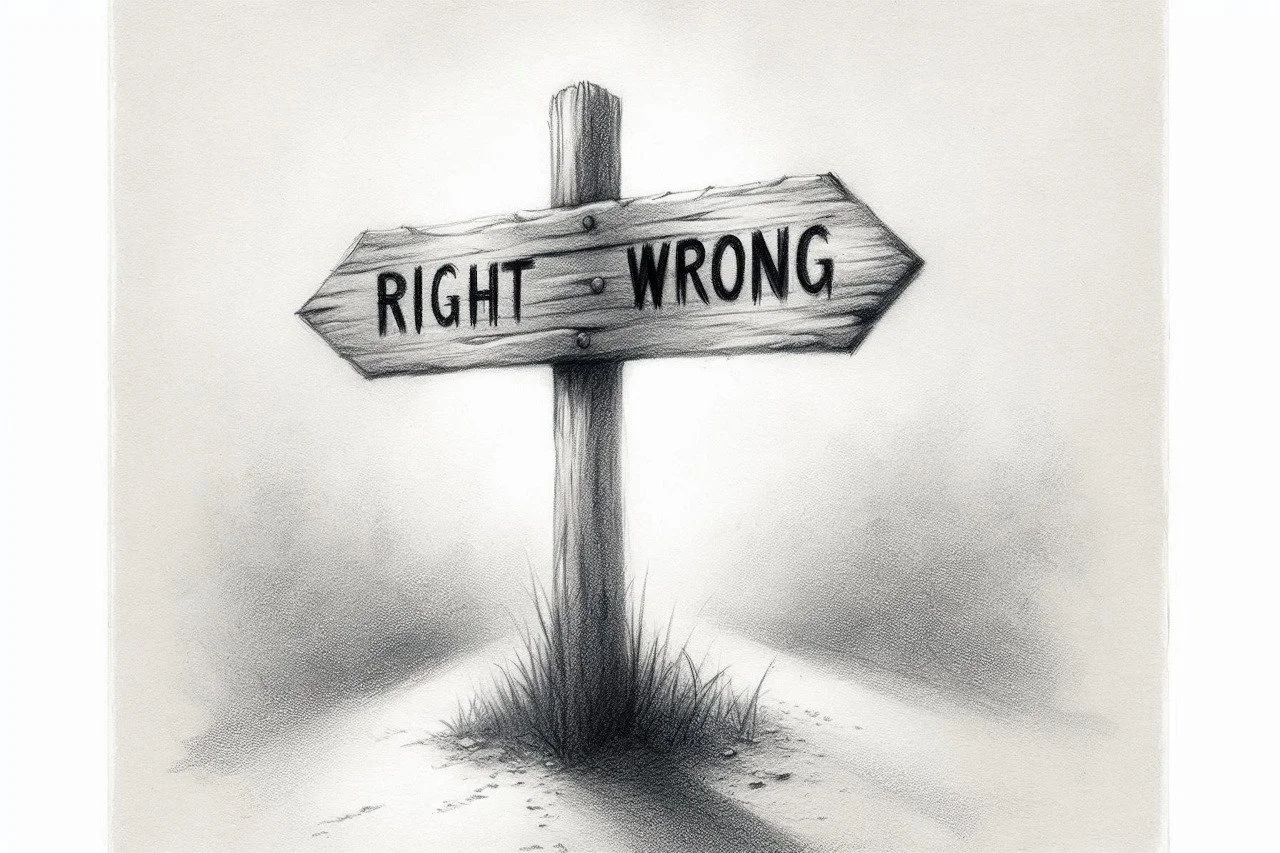Ethics and Morality: When Being a "Gray Man" Can Be Helpful or Dangerous
The concept of the "Gray Man" is a behavioral strategy in which a person deliberately reduces their visibility in social, informational, or physical spaces. The goal is to avoid attracting attention, remain neutral, and not arouse suspicion or interest. This approach can manifest in appearance, speech, behavior, choice of routes, or even digital presence.
Moral and ethical discussions surrounding this tactic arise due to its dual nature: on one hand, it can be a means of self-protection, preserving privacy, or avoiding danger; on the other - a tool for evading responsibility, manipulation, or concealing intentions.
The relevance of this topic is growing in today's world, where issues of security, privacy, and social participation are taking on new forms. In intelligence, civilian life, activism, or even everyday communication - the "Gray Man" strategy becomes a subject of ethical analysis that requires deep reflection on its consequences and boundaries of application.
The Ethics of Invisibility: The Right to Remain in the Shadows
In a democratic society, participation in communal life - through communication, presence, interaction - is considered not only a right but also a duty. The "Gray Man" tactic challenges this norm by offering an alternative: to be present but unnoticed. This raises a fundamental ethical question - does a person have the moral right to consciously avoid attention, remaining on the sidelines of social processes?
On one hand, invisibility can be a form of self-defense - a reaction to threat, discrimination, or excessive intrusion. In this context, it appears as a legitimate choice that allows one to preserve autonomy and safety. On the other hand, deliberate avoidance of participation can be seen as an escape from responsibility, especially in situations that require solidarity, transparency, or a moral stance.
The ethical boundary between privacy and social engagement is thin. It depends on intent, context, and consequences. If invisibility is used to avoid conflict or maintain inner balance - that is one situation. If it serves as a cover for indifference, manipulation, or evasion of moral choice - that is a different dimension that requires critical reflection.
Moral Dilemmas in Intelligence
In the field of intelligence, the "Gray Man" tactic is not merely a behavioral choice - it often becomes a professional necessity. Agents working undercover or in high-risk environments must reduce their visibility to maintain safety, effectiveness, and access to information. Yet even in this context, profound moral dilemmas arise.
First, there is the question of balancing duty and personal convictions. Agents may find themselves in situations where invisibility requires concealing the truth, manipulation, or even participation in morally ambiguous actions. Can strategic necessity justify deception? And if so - where is the line between acceptable and unacceptable?
Second, prolonged existence in the "Gray Man" role can have psychological consequences. Constant suppression of emotions, avoidance of social connections, and denial of self-expression can lead to loss of identity, emotional burnout, or internal conflict. This raises questions not only about the ethics of the tactic but also about its impact on human dignity.
Finally, intelligence as an institution must consider the moral boundaries of applying the "Gray Man" strategy. If the tactic becomes a tool for systemic avoidance of transparency, accountability, or humanity - it ceases to be protective and turns into a form of ethical retreat. That is why moral reflection must be an integral part of agent training.
Civilian Application: Protection or Escape
In everyday life, the "Gray Man" strategy can be a conscious choice by a civilian seeking to preserve privacy, avoid conflict, or protect themselves from potential threats. This choice is often driven by personal experience, social context, or psychological needs.
On one hand, invisibility can be a form of self-defense - for example, in cases of persecution, discrimination, or excessive control. A person who chooses to remain on the sidelines may thus preserve autonomy, inner peace, and safety.
On the other hand, deliberate avoidance of participation in social processes can have ethical consequences. When an individual refuses to engage, show solidarity, or express a position - it may be perceived as indifference, an escape from responsibility, or even passive complicity in injustice.
Real-life examples demonstrate both sides of this tactic. Some choose invisibility as a form of protest - a silent refusal to participate in a system they deem unjust. Others - as a way to isolate themselves from social pressure or preserve mental health.
Thus, civilian application of the "Gray Man" strategy is a complex ethical choice that requires awareness not only of personal needs but also of social context and potential consequences.
Positive Aspects: When It Saves
The "Gray Man" tactic can be not only ethically permissible but also vital - especially in conditions of threat, instability, or systemic violence. In such situations, invisibility becomes a form of protection that allows a person to preserve physical safety, psychological balance, and social autonomy.
Avoiding violence is one of the most obvious examples. People in environments with high levels of aggression may consciously reduce their visibility to avoid becoming targets. This applies to both civilians in conflict zones and members of vulnerable groups in societies with low tolerance.
The "Gray Man" tactic can also be useful in cases of political, religious, or personal persecution. In such contexts, invisibility allows one to avoid repression, maintain freedom of movement, or even preserve life. Ethical legitimacy here is based on the principle of self-preservation - a fundamental human right.
It is also worth mentioning situations where the "Gray Man" helps avoid discrimination or stigmatization. People who do not want to be identified by traits that may provoke prejudice - ethnicity, sexual orientation, political views - may choose neutral behavior as a form of protection.
In all these cases, the "Gray Man" tactic is not an escape from responsibility but rather a manifestation of strategic caution that allows one to preserve dignity, freedom, and safety. Ethical legitimacy of such behavior depends on context, threat, and intent - and in many cases, it is not only permissible but necessary.
Dangers and Abuses
Although the "Gray Man" tactic can be a means of protection, it also carries risks associated with potential abuse. In some cases, invisibility can become a tool for concealing criminal intentions, evading responsibility, or manipulating society.
First, the strategy of invisibility can be used to hide illegal activity. People seeking to avoid control or justice may deliberately reduce their visibility to act with impunity. This raises the question of the boundary between the right to privacy and public safety.
Second, prolonged use of the "Gray Man" tactic can lead to loss of identity. Constant suppression of self-expression, avoidance of social contacts, and refusal to participate in communal life can result in isolation, emotional exhaustion, and alienation.
Finally, invisibility can be a form of manipulation - when an individual or group deliberately avoids participation to influence social processes without a transparent position. Such behavior can undermine trust, transparency, and solidarity in society.
Thus, while the "Gray Man" tactic may be ethically justified in certain conditions, its abuse creates serious moral risks. It is important to distinguish between protection and manipulation, between privacy and escape from responsibility.
Balancing Effectiveness and Morality
Finding a balance between the effectiveness of the "Gray Man" tactic and moral principles is a key challenge for those who apply it. Effectiveness is often measured by the ability to avoid danger, maintain autonomy, or achieve goals without undue attention. However, without ethical reflection, such a strategy can become a tool of indifference or manipulation.
The first step toward ethical application is awareness of intent. If the goal is protection, preservation of dignity, or avoidance of injustice - the tactic may be morally justified. If it serves to evade responsibility, conceal truth, or influence without transparency - it violates ethical norms.
The role of the inner compass - conscience, reflection, capacity for self-criticism - is crucial. A person must constantly evaluate whether their behavior aligns not only with personal interests but also with universal human values. Context also matters: in threatening conditions, invisibility may be necessary, while in peaceful environments - it may appear as an escape.
An ethical strategy of invisibility is possible - but it requires ongoing analysis, openness to change, and willingness to take responsibility for one's actions. The balance between effectiveness and morality is not a formula but a process that demands deep reflection and honesty with oneself and society.
FAQ - Frequently Asked Questions
Is the "Gray Man" tactic always ethical?
No. Its ethicality depends on intent, context, and consequences. If used for protection or preserving dignity - it may be morally justified. If used to evade responsibility or manipulate - it becomes ethically questionable.
Can the "Gray Man" be a form of protest?
Yes. In some cases, invisibility is a silent form of protest against injustice or systemic pressure. It can express dissent without open confrontation.
What are the risks of prolonged use of this tactic?
Possible risks include isolation, emotional burnout, loss of identity, and social disconnection. It is important to periodically reassess one's behavior.
Is there a difference between civilian and professional use of the "Gray Man"?
Yes. In intelligence, it is often a professional necessity, while in civilian life - a personal choice. However, in both cases, ethical boundaries must be considered.
How can I know if my behavior aligns with ethical norms?
Ask yourself: is my intent based on protection, dignity, and integrity? Am I avoiding responsibility or hiding the truth? The inner compass is key to ethical decision-making.
Conclusion
The "Gray Man" tactic is not merely a behavioral choice but a complex ethical strategy that requires deep reflection. It can be a means of protection, a form of protest, or a way to preserve autonomy - but it also carries risks of isolation, manipulation, and loss of moral orientation.
The ethicality of this tactic depends on intent, context, and consequences. It is neither universally right nor wrong - its evaluation requires reflection, honesty, and readiness to take responsibility.
In a world where privacy and security are increasingly important, the "Gray Man" strategy deserves careful study - not only as a survival tool but as a challenge to the ethical consciousness of each of us.
Looking for more? Check out our other pieces on gray man, bugout, and prepper skills
The Psychology of the Gray Man: How to Disappear in a Crowd
How to Disappear Without a Trace: Safety Techniques
The History of the Gray Man Concept - Where Did It Come From
Stealthy Movement Routes - How to Plan Paths for Avoiding Danger
How to Stay Safe While Working in Your Browser
The Digital Shadow in a World of Surveillance. Honest review of NordVPN
Honest Review of Surfshark VPN: How It Can Assist in Grayman, Prepper, and Bugout Approaches













